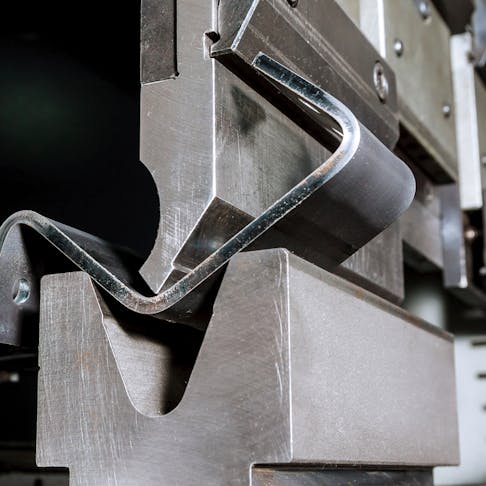
Sheet Metal Fabrication Cost Calculator: Factors That Affect Cost, and How to Reduce Cost

Accurate cost estimation is critical to sheet metal fabrication, ensuring that sheet metal fabrication projects are planned effectively, budgets are controlled, and profitability is optimized. In the dynamic manufacturing world, utilizing a sheet metal fabrication cost calculator can simplify the budgeting process and provide valuable insights for cost optimization. In this article, we will explore the significance of a cost calculator in sheet metal fabrication, understand the factors contributing to fabrication costs, and discover the benefits of utilizing this tool for accurate cost estimation.
Sheet Metal Fabrication Cost Calculator
Factors that Affect Sheet Metal Fabrication Costs
Various factors influence sheet metal fabrication costs, each crucial in determining the final expenses for sheet metal parts. Manufacturers can gain insights into budget allocation and cost control by comprehending these cost components. Let's explore the key factors that contribute to sheet metal fabrication costs:
Raw Material Cost
The choice of raw material significantly impacts fabrication costs. Material type, thickness, grade, and finish all contribute to the overall expenses. Factors like material availability and pricing can help in selecting cost-effective options.
Labor Costs
Labor cost plays a pivotal role in sheet metal fabrication. Skilled labor, wages, and labor-intensive operations are key factors that influence overall expenses. Optimizing labor utilization and efficiency is essential for cost control.
Production Cost
Production costs play a crucial role in determining the overall expenses of sheet metal fabrication. These costs encompass various factors that directly impact the efficiency and effectiveness of the manufacturing process. When estimating fabrication costs, it is essential to consider set-up time, cycle time, scrap rate, and overall production efficiency.
Machine Usage and Tooling
The utilization of machinery and associated tooling costs contribute to fabrication expenses. Proper machine utilization, efficient tooling, and maintenance practices help optimize costs and enhance productivity.
Overhead Expenses
Overhead expenses encompass various costs associated with sheet metal fabrication, such as facility costs, utilities, equipment maintenance, and quality control measures. Managing these overhead expenses is crucial for budget control.
Outsourcing and Subcontracting
Outsourcing or subcontracting specific fabrication processes can impact overall costs. Manufacturers must carefully evaluate these approaches' benefits and considerations to optimize expenses without compromising quality.
The Benefits of a Sheet Metal Fabrication Cost Calculator
Utilizing a sheet metal fabrication calculator offers numerous advantages, empowering manufacturers to make informed decisions and optimize their budgeting process. Let's explore the benefits of using a cost calculator:
Accurate Cost Estimation
A cost calculator provides precise estimates based on specific project requirements, considering various cost components. This accuracy enables better project planning and decision-making.
Efficient Project Planning
A cost calculator facilitates efficient project planning by providing detailed cost breakdowns. Manufacturers can evaluate different cost scenarios, allocate budgets effectively, and meet project deadlines.
Cost Effectiveness
A cost calculator identifies cost-saving opportunities by suggesting alternative materials, processes, or suppliers. These opportunities help manufacturers optimize their expenses while maintaining quality standards.
Real-Time Quote Generation
Manufacturers can generate instant quotes with a cost calculator, enabling faster response times to customer inquiries. This improves customer satisfaction and fosters stronger business relationships.
Budget Control
A cost calculator assists in budget control by tracking expenses and comparing actual costs to estimates. It highlights areas where costs can be reduced or controlled, ensuring financial stability.
Sheet Metal Fabrication Cost Calculator Best Practices
To make the most of a sheet metal fabrication cost calculator, manufacturers should follow these best practices:
Accurate Data Input
Provide precise data regarding material specifications, part complexity, quantity, and finishing requirements for accurate cost calculations.
Customization Options
Utilize customization features within the cost calculator to align cost estimation with specific project requirements and manufacturing capabilities.
Cost Analysis and Comparison
Leverage the cost calculator to perform in-depth cost analysis, comparing different scenarios, materials, or processes to identify the most cost-effective options.
Validation and Verification
Validate and verify cost estimates generated by the calculator through internal cost analysis or consulting with industry experts to ensure accuracy.
Continuous Improvement
Share feedback on the cost calculator's functionality to drive continuous improvements, enhancing its accuracy, usability, and effectiveness.
By adopting these best practices, manufacturers can maximize the benefits of utilizing a sheet metal fabrication cost calculator, enabling effective budgeting, cost optimization, and improved profitability.
Summary
This article presented a sheet metal fabrication cost calculator, explained it, and discussed the various factors that affect cost. To learn more about sheet metal fabrication, contact a Xometry representative.
Xometry provides a wide range of manufacturing capabilities, including sheet cutting and other value-added services for all of your prototyping and production needs. Visit our website to learn more or to request a free, no-obligation quote.
Disclaimer
The content appearing on this webpage is for informational purposes only. Xometry makes no representation or warranty of any kind, be it expressed or implied, as to the accuracy, completeness, or validity of the information. Any performance parameters, geometric tolerances, specific design features, quality and types of materials, or processes should not be inferred to represent what will be delivered by third-party suppliers or manufacturers through Xometry’s network. Buyers seeking quotes for parts are responsible for defining the specific requirements for those parts. Please refer to our terms and conditions for more information.
